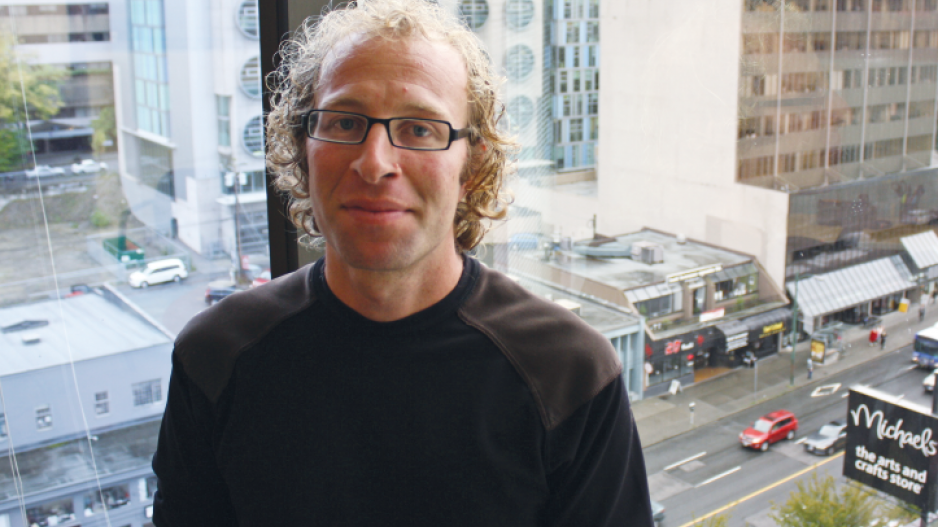What puts you most at risk of developing a serious health condition?
If you guessed smoking, not eating right, genetics or being exposed to pollution, you’d be wrong.
“The most common illnesses are more common in poor people,” Dr. Gary Bloch, a Toronto physician who treats some of that city’s poorest people, told Business in Vancouver.
“Something like diabetes, which is becoming more common in our society, is that much more common. Heart disease is common, but is that much more common. Even things like cancers of various sorts.”
Wearing jeans and a brown sweater, and with an unruly mop of curly blond hair, Bloch identifies himself as an unlikely member of Canada’s richest 5%.
But he thinks wealthy people like him should pay more income tax. It’s the only way, he says, to combat the serious health problem of poverty.
Bloch, 39, has become the public face of a movement of doctors and health providers who are pressing for poverty to be dealt with as a health issue.
“We’re willing to spend billions of dollars to help people with diabetes, heart disease, people who smoke, people who are obese,” Bloch said. “For some reason we’ve decided to pump our tax money into dealing with those types of conditions.”
Anita Huberman, CEO of the Surrey Board of Trade, is interested in what Bloch has to say. British Columbia’s second-largest city is the fastest-growing region in Metro Vancouver, but it’s also struggling with crime and poverty.
For instance, a higher proportion of Surrey’s population uses the food bank than the B.C. or national average, according to a recent report that tracked quality of life in the municipality.
That affects Surrey’s economy, Huberman said.
“Poverty increases health-care costs, policing burdens, diminished educational outcomes,” Huberman said. “When we have a skill shortage and a labour shortage issue not only provincially but nationally, we want to try to maximize the full labour productivity of all of our citizens.”
In 2013, B.C. had the highest rate of child poverty in Canada, according to youth advocacy group First Call’s annual report on the issue. That organization has called out the provincial government for doing the least among the provinces on the issue.
Huberman would like B.C. to adopt a poverty reduction strategy, similar to policies recently adopted by New Brunswick and Ontario. Poverty advocates have also called for Canada to adopt a national strategy.
Business in Vancouver spoke with Bloch when he was in Vancouver in September speaking to health providers, politicians and the public about the link between income and health.
Bloch was born in South Africa but grew up in Vancouver. His mother has practised medicine at Kitsilano’s Pine Free Clinic, which focuses on sexual and reproductive health care for young people, for nearly 30 years. Early experiences with the Jewish youth movement Habonim Dror and stints in Africa shaped his interest in social justice issues, Bloch said. In Toronto, he’s found a strong community of “progressive and activist” doctors.
Bloch works at St. Michael’s Hospital and is a co-founder of Inner City Health Associates, an organization that provides health care to homeless people.
He’s seen the health effects of poverty first-hand.
“On a typical day in the homeless shelter, I might see someone come in who’s 40 or 45 and has really the body of a 65- or 70-year-old on top of other mental health issues and other things going on,” Bloch said.
Research has shown that every step up the income ladder brings better health, said Vanessa Brcic, a Vancouver doctor who has worked with Bloch on public health initiatives. 
A study conducted in Hamilton, Ontario, using data from 2006 to 2008, showed a dramatic 20-year difference in life expectancy between the richest and poorest residents of that city.
“It’s not just above and below the poverty line that makes a difference,” Brcic said, “but income relates to health in such a powerful way for absolutely every illness that has been studied.”
Bloch said a slew of initiatives are needed to tackle poverty, including better and more affordable child care, a higher minimum wage and raised welfare rates.
While poverty reduction might seem like an expensive endeavour, advocates argue that poverty costs Canada and the provinces billions every year. In 2011, the Canadian Centre for Policy Alternatives calculated the cost of poverty for B.C. at between $8 billion and $9 billion a year. That figure includes increased health-care and criminal justice costs as well as lost economic productivity.
Huberman says it’s important to keep government costs under control. But she’d like to see the federal government shift its budget priorities to fund social programs like $10-a-day child care.
“Economic and social issues are tied in together,” Huberman said. “Our social issues are part of building a healthy economy.”
Premier Christy Clark has said she believes job creation is the best way to tackle poverty, but Bloch said that does not address the many barriers that keep people poor.
“You need to put in place programs that will reduce those impacts for generations to come.”
Mission: More social programs directed at reducing poverty in Canada Assets: First-hand witness to serious health problems and reduced life expectancy of the very poor Yield: A growing advocacy movement involving doctors and health providers |
@jenstden




